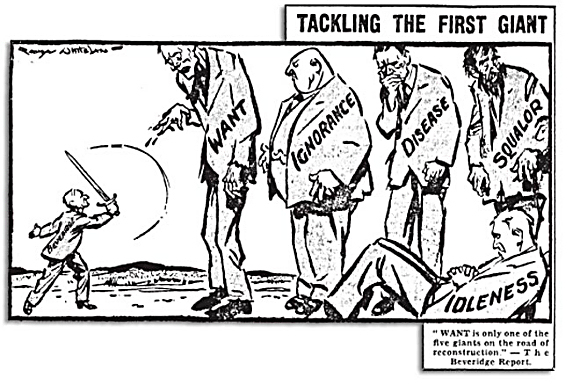I am weak and succumbed to temptation and made my first attempt at a fisk with the Allister article in today's News Letter as my subject.
"AS the 100th anniversary of the foundation of Northern Ireland approaches, unionists should reflect on why our forefathers fought so hard for the creation of the state."
The creation of the Northern Ireland state was not the original aim of Unionism during the Third Home Rule Crisis. It was the compromise that was accepted after the Great War.
"Northern Ireland was established because the unionist people of Ulster refused to accept the imposition of a Dublin parliament"
This is negative reductionism. The Unionist desire to be part of the Union (and at that time the Empire) was a positive but here it is presented as solely based on a negative motivation.
"They valued, as the foundational document of Northern Ireland, the Ulster Covenant, puts it, "our cherished position of equal citizenship in the United Kingdom".
It was the foundational document but the house built upon it was not what was intended. The reality of our history and not something that Unionists are keen to admit, is that the Ulster Covenant is a compromised document. It was a 9 county document not 6.
Furthermore, it was a rejection of any form of Home Rule yet Ulster Unionism compromised the principle of equal citizenship when it agreed to establish the Northern Ireland parliament. (Note there is an argument that this was in the expectation that a federal UK was on the horizon. However, there is not much to substantiate that this was a serious possibility.) In the Unionist debates of the time the justification for this was to claim that the Ulster Covenant was a time bound document that no longer applied. IIRC it was the Larne Gunrunner, Sir Fred Crawford, who was the man used to make this particular argument. So they didn't value it in 1921 rather they were working out how to get around it.
"Equal citizenship is the cornerstone of the Union. When this is diluted, so is the Union.This has already begun."
This ignores that asymmetry has been a more common feature of the Union than symmetry. If asymmetry creates an inequality of citizenship then Unionists diluted it in 1921. So technically the 'dilution' began in 1921 not 1998. BTW I happen to think that equal citizenship is a good guiding principle for the Union but it is a mistake to present it as if it has been successfully implemented, it hasn't and isn't.
"Unlike Scotland and Wales, the devolved setup in Northern Ireland denies us two fundamentals of British democracy – the right to vote a party out of government and the right to have an Opposition."
The second right is not denied by law. There can be an opposition at Stormont. There is no legal requirement on a party to take its seats in the executive. Any of the Executive parties can leave any time they wish.
"As part of the UK, any form of devolution here should be compatible with British practice instead of the undemocratic and fundamentally unworkable system we have at present."
Which British practice? English with no devolution, Welsh with administrative or Scottish with the highest degree of devolution. This is a further example of the asymmetry of the Union mentioned above.
"In Northern Ireland we have compulsory coalition with those whose overriding purpose is the destruction of the Union."
The over-riding purpose of mandatory coalition is to make sure Northern Ireland has a government. It has no legal or constitutional imperative or power to destroy the Union.
"Today, it is clear that government by joint authority with terrorists at Stormont and cross-border executive bodies with Dublin is semi-detaching us from the UK and building a momentum towards ending the Union...If unionists do not waken up to that reality, we will drift inexorably out of the Union and into an all-Ireland, built by increasing north-south fusion and cutting the ties which bind us to London."
This is a fear (a fear at a time I'd have shared) but after 12 years is it still a rational one? The Cross-border bodies have been operating for 10 years with no impact on our position in the Union. Also in that 10 years not one more has been created. Furthermore, the nationalist vote has stalled and in the last election shared Unionism's turnout issues. The Republic of Ireland more than enough woes of its own as well. So what momentum is there? To be fair to David Trimble it was one area of identifiable success - it was in the internal arrangements and deparamilitarisation that the mess was made. Jim Allister also chooses to forget that he argued after the Anglo-Irish agreement in a book, Alienated but Unbowed, that the best thing for Unionists here was to get as much power away from London as it could not be trusted but we could. Now it is the reverse.
"Fiscal powers for Stormont is just the latest staging post demand by republicanism."
There is no serious attempt to increase Stormont fiscal powers. The one proposal that was floating around was corporation taxes and it looks dead in the water because of the budgetary hammering it would involve. Anyway the Scottish parliament has greater fiscal powers (and due to get more) and the earlier demand was "any form of devolution here should be compatible with British practice". Fiscal powers can fit that definition.
"Here is the unifying challenge for all unionist parties. If we all dislike compulsory coalition and recognise it as undemocratic then let’s do something about it. Let’s all pledge now that after the 2011 Assembly elections none of us will operate it and, thereby, compel the change to voluntary coalition. This is not an anti-devolution strategy; this is a pro-democracy strategy."
Unionist Unity through agreeing to TUV tactics is not credible nor is it a sincere approach to the topic.
"I fear some unionist politicians are too comfortable in the present destructive arrangements to force change but instead salve their consciences with empty talk about there being ‘no alternative’. Had our forefathers taken that attitude Northern Ireland would never have come into existence because there was ‘no alternative’ to the 1912 Home Rule Bill!"
There are alternatives to what we have at present. That does not mean they are pleasant ones nor morally pure either. Unionism did ultimately get a pretty good deal in 1921 but it was a compromise not the target that had been set. Finally the situation of Unionism and its levels of support in 1912 and 2010 bear no comparison. The sister document of the Ulster Covenant, the British Covenant, attracted 2 million signatories in GB. Unionism had the support of the Conservative Party, a broad swathe of the British establishment (an establishment that still had its self-confidence (arguably over-confidence)) and significant parts of the British media. It had a mass membership and wealthy benefactors. If we had all those then by all means the 1912 strategy could be a credible runner and I'd happily sign up. It isn't. An attempt at a grand stand now would owe more to General Custer than Edward Carson or James Craig.
"There is an alternative to terrorist-inclusive compulsory coalition, but only if we want it. If we don’t then prepare to live in a different Union, the union of an all-Ireland."
Co-opting the historical determinism of Irish republicans really needs to stop in Unionism. It is perfectly within the abilities of Unionists in Northern Ireland to out-work, out-think and out-manoeuvre republicanism. Allister has a point whe he says "Some may lull themselves into pretending the Union has never been stronger." but prophecies of imminent doom as a response to rose-tinted analysis is not the answer either.






